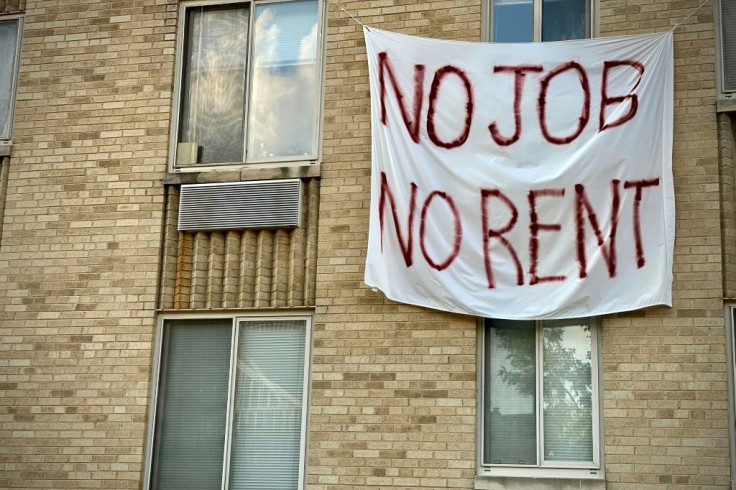Millions Of Americans May Be Evicted This Month As Eviction Ban Expires
KEY POINTS
- The CDC's national eviction moratorium is set to expire this June
- An analysis by the CBPP says 15% of renters are behind on their payments
- Housing advocates argue that states are yet to fully distribute $45 billion in rental assistance
Millions of Americans could be left without a home soon when the national eviction ban expires this June.
In September, the U.S. Centers for Disease Control and Prevention’s Director Dr. Rochelle Walensky signed the eviction moratorium with an aim to keep renters in their homes and slow the spread of COVID-19. It will lift on June 30.
To be eligible for the protection, single taxpayers must earn $99,000 per year and $198,000 for couples filing jointly.
According to experts, evictions could see a dramatic surge when the ban lifts in June. An analysis by The Center on Budget and Policy Priorities (CBPP), a non-partisan research and policy institute, revealed that approximately 15% of renters are behind on their payments.
In Florida and South Carolina, 25% of renters are behind on their housing payments, whereas in Maine and Kentucky, 6% of adult renters could be evicted this month.
“Some states already faced greater housing affordability problems before the pandemic,” Alicia Mazzara, a senior research analyst for the CBPP, said.
More than 100,000 tenants aged 65 and above could also be evicted in the next two months, with nearly 450,000 renters aged 55 to 64 facing the same fate, according to a recent analysis by the American Society on Aging.
Housing advocates have pushed back on the lifting of the eviction ban, arguing that states are yet to fully distribute more than $45 billion in rental assistance that comes from the stimulus packages passed by the Trump administration in December and President Joe Biden’s American Rescue Plan.
“We need to let this moratorium stay in place until we spend all this money,” Mark Melton, a lawyer representing tenants facing possible eviction in Dallas, told CNBC. “If you bail out the renter, that means you bailed out the landlord,” he added.
Landlords across several states previously filed lawsuits challenging the authority of the CDC to impose the eviction moratorium. So far, three judges have ruled in favor of the ban, but three others, including a judge in Memphis, declared that the CDC exceeded its authority.
In early May, U.S. District Judge Dabney L. Friedrich of the District of Columbia ruled that the CDC did not have the authority to impose the national moratorium under the Public Health Service Act.
“The court recognizes that the COVID-19 pandemic is a serious public health crisis that has presented unprecedented challenges for public health officials and the nation as a whole,” Friedrich wrote. “The pandemic has triggered difficult policy decisions that have had enormous real-world consequences. The nationwide eviction moratorium is one such decision.”

© Copyright IBTimes 2025. All rights reserved.




















